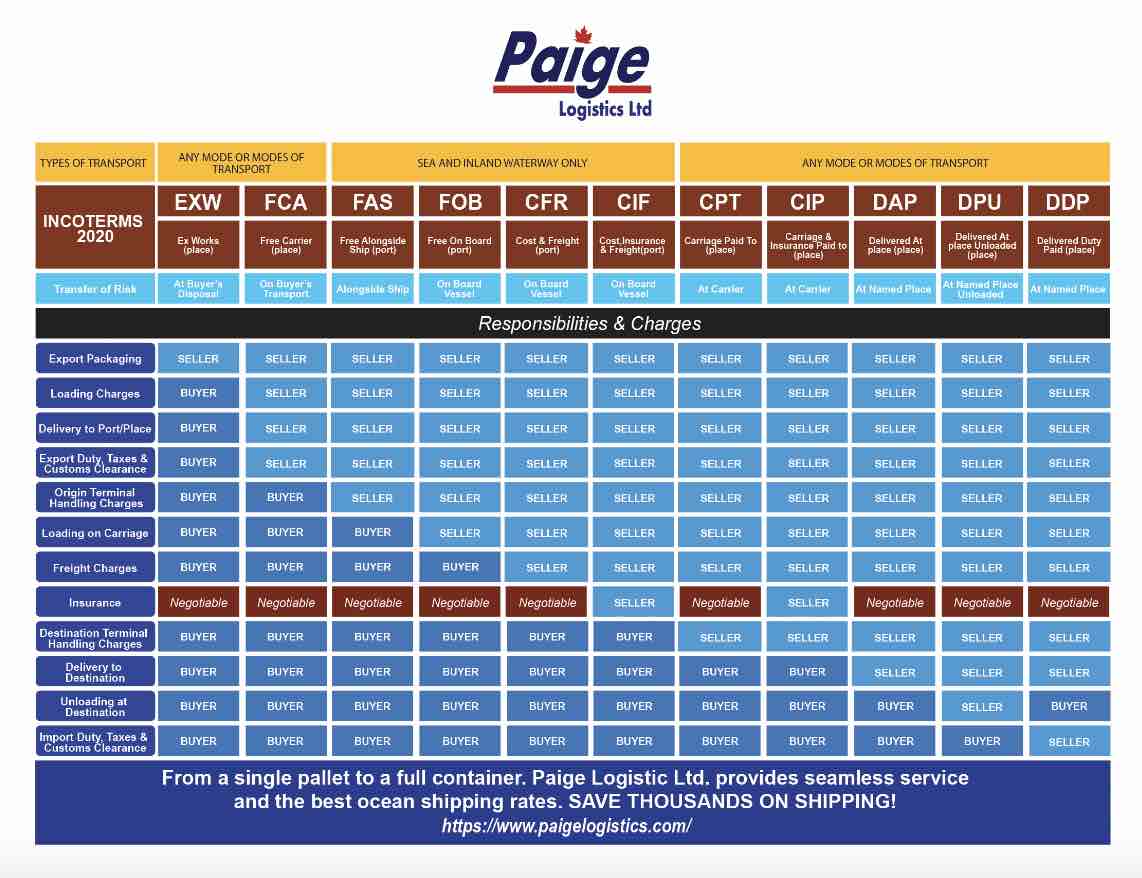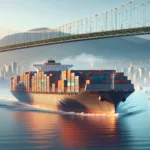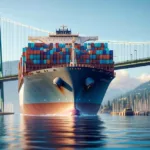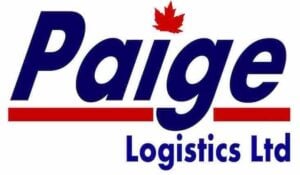we love
to help
The International Commercial Terminology (Incoterms) are a collection of pre-defined business terms published by the International Chamber of Commerce (ICC) that pertain to international commercial law.
Specifically to outline exporters and importers responsibilities in the the transfer of liability and the organization of shipments at various transactional phases.
Trade councils, courts, and international attorneys support their usage in procurement processes and international business transaction.
A series of three-letter trade phrases relating to standard contractual sales practices.
The primary purpose of the Incoterms regulations, the primary purpose of the Incoterms regulations, is to properly convey the costs, tasks and hazards associated with the or international transportation and worldwide delivery of goods.
Designed inform purchase contracts by specifying the various obligations, expenses, and risks associated with the delivery of products to the buyer from the seller.
Incoterms guidelines are recognized internationally by governments, legal bodies for interpreting the most regularly used terms in international trade.
They are meant to lessen or eliminate uncertainty caused by divergent interpretations of the rules between countries. Consequently, they are commonly included in sales contracts globally. Learn about DAP incoterms
Ocean Freight Services China to Canada
 Incoterms 2020 formally defines delivery as th e point in the transaction at which “the risk of loss or damage [to the goods] passes to the buyer.
Incoterms 2020 formally defines delivery as th e point in the transaction at which “the risk of loss or damage [to the goods] passes to the buyer.
Set within two categories, divided eleven pre-defined terms, based solely on the method of delivery.
The smaller group category is made up of four rules applies only to sales involving solely water transport where the condition of the goods can be verified at the point of loading.
The larger group of seven rules may be applied regardless of the mode of transport.
Therefore, they cannot be used for combined transport methods (containerized freight) other, or air, road or rail transport.
The ICC has registered the trademark “Incoterms.
International Commercial Trade Words, or Incoterms for short, are sales terms used by buyers and sellers to indicate which side is responsible for the tasks, costs, and risks associated with moving the goods to the buyer in international trade.
When foreign purchasers purchase things, sellers frequently include a three-letter abbreviation of one of the 11 Incoterms to specify the terms of the deal.
These phrases indicate the many tasks, expenses, hazards, and logistics involved in transporting commodities by sea, air, or land.
Each Incoterm specifies the following duties and responsibilities:
• Point of delivery – This section specifies where the seller will transfer the products to the customer.
- The party responsible for transportation charges – This section identifies the party responsible for covering the freight costs. Frequent descriptors for this component include Freight Prepaid and Freight Collect.
- Export and import requirements – Each phrase specifies whether the seller or the purchaser is responsible for funding charges and enabling the export and import of the cargo.
- The party liable for freight insurance — In certain Incoterms, freight insurance is mandatory. Each Incoterm will specify who is responsible for freight insurance costs.
The following is a concise description of each Incoterm:
• EXW – Ex Works or Ex-Warehouse: The seller is responsible for packaging and delivering the products. The buyer is then responsible for exporting, transporting, and importing the cargo.
FCA – Free Carrier: The seller is responsible for carrying the shipment to a specified location within the seller’s country, typically a shipping terminal.
Once the shipment reaches its targeted location, it is transferred to the buyer, who must then pay the freight costs and complete the importing and delivery process. Depending on the specified location, either the seller or the buyer exports the goods.
• FAS – Free Alongside Ship: The seller is responsible for managing the entire export procedure until the cargo is alongside the ship or other method of transport.
Once alongside the ship, the customer assumes all liability.The buyer is responsible for loading the cargo aboard the vessel of their choosing and transporting the items to their final destination.
• FOB – Free On Board: The seller is responsible for managing the entire export process and loading the merchandise onto the ship.
Once the cargo has been loaded securely, the products are transferred to the purchaser. The customer is responsible for the cost of transporting the items to their final destination as well as all import fees.
• CFR – Cost and Freight: The seller is liable for shipping the freight to the port of the buyer.
Once the items have landed at the port, the buyer assumes responsibility. The buyer must next unload the cargo, import the items into the destination country, and then import and transport the goods to the final destination.
• CIF – Cost, Insurance, and Freight: The seller is responsible for shipping and insuring the cargo to the port specified by the buyer.
Once the products arrive at the port, the buyer assumes responsibility for them. The buyer is then responsible for unloading, importing, and delivering the shipment.
- CIF mandates that the seller acquire freight insurance.
- CPT – Carriage Paid To: The seller is responsible for loading and unloading the shipment off the vessel at the designated location of delivery. The buyer is then responsible for importing and delivering the freight to its final destination after the goods have been unloaded.
- CIP – Carriage & Insurance Paid: The seller is responsible for shipping and insuring the cargo to the specified delivery location. After cargo is unloaded and delivered to the terminal, ownership of the shipment passes to the buyer. After unloading and delivering the items to the designated terminal, the consignment is transferred to the buyer. The buyer must import the items and complete the remainder of the shipping process in order to transport them to their final location. CIP mandates that the vendor obtain freight insurance.
- DAP – Delivered at Place: The seller is responsible for the freight delivered to the final, specified location. Once delivered, ownership of the goods passes to the buyer. The cargo must be unloaded from the vehicle by the buyer. Additionally, the purchaser is liable for import duties, taxes, and customs clearance.
- DPU – Delivered at Place Unloaded: The seller is responsible for delivering and unloading the shipment at its final destination. Once the freight has been successfully unloaded at the buyer’s warehouse, the buyer assumes responsibility. Import duties, taxes, and customs clearance are the buyer’s responsibility.
- DDP – Delivered Duty Paid: The seller is responsible for delivering the shipment to the final destination as well as covering all charges including import duty, taxes, and customs clearance. Once the item arrives at its destination, the buyer is responsible for the expenditures associated with unloading the shipment. DDP is the only Incoterm in which the seller is responsible for all duties.
The benefits of using Incoterms
To establish a legally binding contract between the buyer and seller, outlining the manufacturer’s and customer’s responsibilities regarding the delivery of the products.
Although sellers are not required to specify an Incoterm when selling internationally, doing so reduces confusion regarding the parties’ respective responsibilities and obligations.
Due to the prevalence of language barriers and cultural differences in international commerce, these terms describe a significant portion of the process of moving products from seller to buyer.
Consider working with a China to Canada freight forwarder if you are new to importing freight and incoterms and wish to avoid future costly errors.
What Does Incoterms Exclude That I Need to Know as a Buyer?
Incoterms facilitate the communication of a significant portion of the logistics and cargo transfer procedure, which is why the vast majority of international merchants employ them.
While these terms convey a substantial amount of information, they do not explain a significant amount.
As miscommunication frequently leads to misunderstandings and costly mistakes, it is crucial that purchasers comprehend not only what these terms indicate, but also what is not included in each of these terms.
International Commercial Trade Terms facilitate the communication of the terms of delivery for a product purchased internationally.
These conditions do not define the payment terms or any external rights for the product. They do not specify how the consumer should pay for the items nor who is responsible for the shipment in the event of defective, incorrect, or unsuccessful productions.
Incoterms do not exist to protect consumers from deception or guarantee products in any way.The only term defined by Incoterms is the responsible party during the transportation process.
Incoterms are not a contract for the sale of goods; rather, they allow both parties to communicate a portion of the purchase agreement.
Identifying whether Incoterms protect buyers against the risk of cargo damage, loss, or larceny may be challenging for some buyers.
Each Incoterm can help elucidate each of these concerns; however, only two Incoterms mandate that the seller purchase freight insurance.
Unless freight insurance is agreed upon prior to shipment, the customer must independently acquire cargo insurance.
Where Can I Observe Regarding the Incoterm 2023 Rules?
The International Chamber of Commerce creates new Incoterms every decade.
While businesses such as Paige Logistics rely on adhering to the ICC’s requirements, you can learn more about the rules by visiting the ICC’s website or by obtaining our handbook, which is updated whenever changes are made public.
At Paige Logistics, we are committed to ensuring that the international shipping logistics of our clients are as streamlined and straightforward as feasible.
Whether FCL or LCL, we believe that an informed shipper is a happy shipper.
Therefore, we have compiled a variety of resources to aid you in understanding each Incoterm and how to implement them in international commerce.
Comprehending Incoterms Obligations
Not all Incoterms are applicable to all cargo types. While all Incoterms are valid for canal transport, certain Incoterms can only be used for waterway transport and not for land or air transport.
If you employ a waterway-only Incoterm and ship by an other means, you may incur additional, unanticipated costs.
Below is a collection of Incoterms applicable to all shipping methods.
• EXW — Ex-Works or Ex-Storage
• FCA – Free Carrier
• CPT – Transportation Paid To
• CIP – Transportation and Insurance Coverage Paid To
- DAP – Delivered At Location
- Delivered At Place Unloaded
- Delivered Duty Paid (DDP)
The following Incoterms can only be used for maritime and inland waterway transport:
- Free Alongside Ship (FAS)
- FOB means Free on Board.
- Cost and Freight (CFR)
- CIF stands for Cost, Insurance, Freight.
What differentiates “Freight Collect” from “Freight Prepaid”?
Freight Prepaid and Freight Collect are terms frequently used between buyers and sellers in international freight transactions.
Freight Collect is one of four Incoterms requiring the buyer to collect and pay for all freight expenses. Freight Collect is connected with the following Incoterms:
1. Ex-Works or Ex-Warehouse (EXW)
2. FCA – Free Carrier
3. Free Accompanying Ship
4. FOB — Free on Board
Freight Prepaid implies that the vendor will cover the cost of shipping. Freight Prepaid consists of the last seven Incoterms.
1. CFR – Price and Weight
2. CIF – Price, Insurance, and Freight
3. Transportation Paid To
4. CIP – Carrier and Insurance Coverage Paid For
5. Delivered At Place (DAP)
6. DPU: Delivered At Place Unloaded
7. DDP — Delivered Duty Paid
When shipping under the CIF and CIP Incoterms, What types of insurance must a seller obtain?
Two International Commercial Trade Terms (CIF and CIP )require the seller to insure the cargo prior to shipment. Each of these words imposes particular requirements on the type of insurance a seller must obtain.
- CIF, or Cost, Insurance, and Freight, needs an insurance policy with minimum Institute Cargo Clause coverage (C).
- CIP, or Carriage & Insurance Paid To, requires an insurance coverage with a minimum cover equivalent to the Institute Cargo Clause (A).
In response to global user feedback, there is now a higher level of coverage mandated buy the CIP Incoterms® rule, in accordance with the Institute Cargo Clauses (A) or similar clauses.
Insurance that must be provided in accordance with terms CIF and CIP has also changed, from Institute Cargo Clauses(C) to Institute Cargo Clauses (A).
Reserved for maritime trade and is frequently used in commodity trading, found under the CIF Incoterms rule, is the Institute Cargo Clauses (C) remains the default level of coverage, allowing parties to agree to a higher level of insurance coverage.
How do the buyer and seller determine which Incoterm to use?
Unless specifically requested by a buyer, sellers frequently use Incoterms that benefit them and their customers.
Frequently, buyers have distinct preferences, which are communicated to sellers, and via this communication, a buyer and seller can agree on the Incoterm that is most suitable for their transaction.
For Incoterms to be contractually binding, the terms must appear on the purchase agreement, sales invoice, or sales contract.
Understanding these contractual obligations, no additional paperwork or form is required when choosing an Incoterm; rather, the term should be included alongside the product price and described as the agreed-upon incoterm.
During the freight shipping order process, Incoterms may alter. An Incoterm could change, for instance, if a shipment was originally intended for maritime transport but, due to delays or unforeseen circumstances, must be sent by air.
As we have already stated, not all phrases apply to air travel.
If there is a change in the terms, purchasers and sellers must convey this change, just as they would express any other change in a purchase agreement.
Paige Logistics is dedicated to provide the best rates for shipping logistics.
We serve ocean shipping, drayage management, shipping container trucking, intermodal transport, heavy-haul trucking and cross border shipping.
We offer premium LCL services and China to Canada shipping services.
Stuck for finding the best freight forwarder China to Canada?
Shipping with Paige Logistics! Offering extended cross border shipping Canada to California.
2023 Global Leader In Shipping
Freight Carriers Association of a Canada
Ocean Freight Services China to Canada
Freight and Shipping Insurance
International Fulfillment and Logistics

Author & Chief Executive Officer at Paige Logistics Ltd. → Experienced Operations Manager with a demonstrated history of working in the Transportation, Trucking and the Railroad Industry.
Related Posts

Freight Brokerage Unlocking the Potential of Freight Brokerage Solutions for Your Business Click For Best Price Awarded #1 in Shipping click on badge Deliveries +

Freight & Shipping Insurance The Comprehensive Guide to Shipping Insurance for Freight in International Trade Click For Best Price Awarded #1 in Shipping click on

Understanding Specialized Transport Click For Best Price From Giant Machines to Hazardous Materials: The Wild Side of Specialized Transportation! Awarded #1 in Shipping click on

Seasonal Load Restrictions How to Outsmart Seasonal Load Limits and Save Big! Click For Best Price Awarded #1 in Shipping click on badge + 0

Mastering the Intricacies of CFR Incoterms A Comprehensive Guide Click for Best price CLICK ON BADGE Deliveries + 0 Happy Clients 0 manufacturers 0 Awards

CIF Incoterms The Comprehensive Guide to CIF (Cost, Insurance & Freight) in International Trade Click For Best Price Awarded #1 in Shipping click on badge

